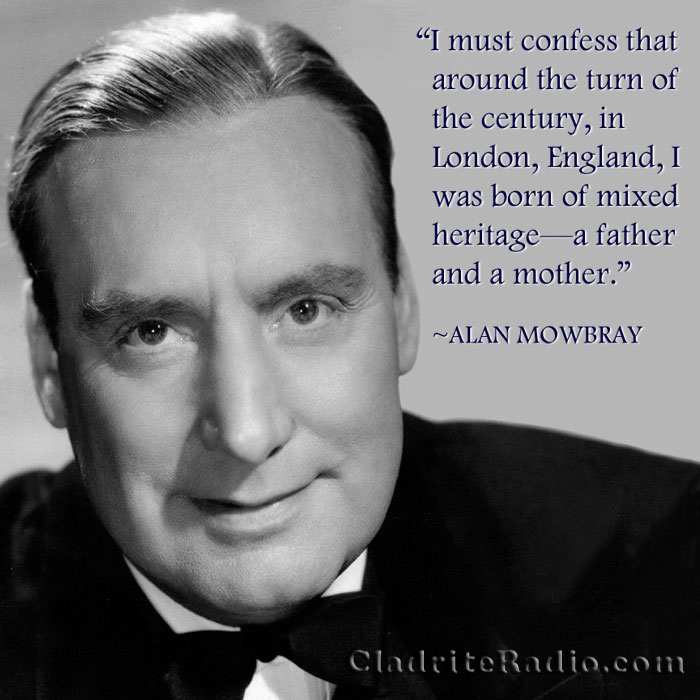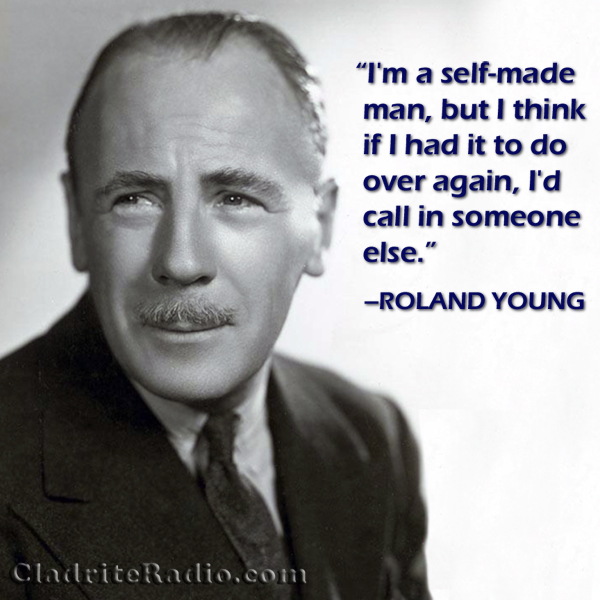Here are 10 things you should know about Alan Mowbray, born 124 years ago today. The prolific character actor appeared in more than 140 films and 40 TV series over his 39-year career.
Tag: Sherlock Holmes
Happy 120th Birthday, Alan Mowbray!
Character actor Alan Mowbray was born Ernest Allen in London, England, 120 years ago today. Here are 10 Did-You-Knows about the veddy, veddy British Mowbray:
- After serving in the British Army during World War I, Mowbray was awarded the Military Medal and the French Croix de Guerre for bravery.
- After beginning his acting career in touring productions in the English provinces and later appearing in London’s West End, Mowbray moved to New York City. Once there, his money quickly ran out and with nowhere to stay, he lived for a time in Central Park.
- Before long, Mowbray was hired to tour with the Theatre Guild. His Broadway debut was in a 1926 play called Sport of Kings.
- In 1929, Dinner Is Served, an original comedy that Mowbray wrote, directed and starred in, opened on Broadway at the Cort Theatre. It closed after just four performances. In December of that year, Mowbray opened in The Amorous Antic. After that, he would not again appear on Broadway until 1963, when he was cast in Enter Laughing.
- His stiff-upper-lip manner and posh accent were Mowbray’s ticket to Hollywood, where, with the advent of talkies, theatrical actors who spoke well were in demand. He made his motion picture debut in 1931 opposite Frank Fay, Laura La Plante and Joan Blondell in God’s Gift to Women. He played a butler.
- He played George Washington in three different pictures: Alexander Hamilton (1931), Where Do We Go From Here? (1945), and in an uncredited role, The Phantom President (1932).
- Mowbray was a founding member of the Screen Actors Guild.
- Over a thirty-year career in movies, he appeared in more than 130 feature-length motion pictures. He also was very active on television, where he amassed more than 50 credits in nearly twenty years of work.
- Mowbray became the father-in-law of fellow character actor Douglas Dumbrille, who, at the age of 69, married Mowbray’s 28-year-old daughter (ick!).
- He appeared in movies opposite a trio of actors portraying Sherlock Holmes: Clive Brook in Sherlock Holmes (1932), Reginald Owen in A Study in Scarlet (1933) and Basil Rathbone in Terror by Night (1946).
Happy birthday, Alan Mowbray, wherever you may be!

Happy Birthday, Roland Young!
Any old movie fan can quickly come up with a list of stars whose name in the opening credits is reason enough to give a motion picture a look.
But we suspect that only true aficionados would include the name Roland Young, who was born 128 years ago today, on that list.
Well, you can count us in the latter group. Mr. Young, for our money, is among the elite of motion picture stars of the 1930s and ’40s.
Born the son of an architect in London, England, Young attended the Royal Academy of Dramatic Art and made his stage debut in 1908, his Broadway debut four years later, and after serving (with the U.S. Army, interestingly enough) in World War I, his movie debut in 1922, playing Watson to John Barrymore‘s Sherlock Holmes.
But it was in talkies that Young really found his stride. He excelled at playing upper crust types, with his neat little mustache and his fumbling, mumbling way of speaking, and so, though he would play the occasional dramatic part (and very ably, too) over the course of his movie career, it was in romantic and screwball comedies that he truly made his mark.
Roland Young is perhaps best remembered for his portrayal of the henpecked Cosmo Topper in the popular Topper series of pictures, but his roster of credit includes a number of top-notch comedies, among them One Hour with You (1932), Ruggles of Red Gap (1935), The Philadelphia Story (1940), and Tales of Manhattan (1942), but even in lesser known films, he shines.
Young also worked in radio, starring in a 1945 summer replacement series based on the Topper movies and guesting on other programs, and on television, including such programs as Lux Video Theatre, Studio One, Pulitzer Prize Playhouse and The Chevrolet Tele-Theatre.
Young died of natural causes at age 65 in his NYC apartment on June 5, 1953.
Here’s to you, Mr. Young. Thanks for the laughs!

